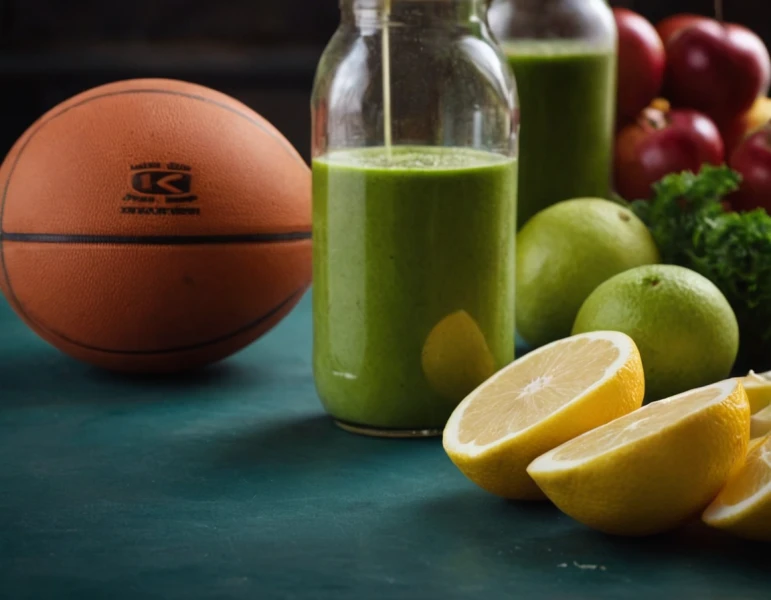Educa UNIVERSITY|HEALTH
Sports and Nutrition: The Powerful Duo
Sports and Nutrition: The Powerful Duo
Hello, I'm Carlos Hidalgo, and today I want to talk to you about sports and nutrition from my own experience and knowledge. I have spent years practicing different sports, from soccer to marathons, and believe me, nutrition is fundamental to maximize performance and maintain a healthy body. This is not just a theory I learned in a book, but something I have experienced firsthand.
Why is nutrition so important in sports?
I'll make it easy for you: what you eat directly affects your performance. It's as simple as that. The body is like a race car: if you put bad gas in it, it's not going to perform at its best. And this is where sports nutrition comes in, which is nothing more than tailoring what you consume to your specific needs as an athlete. Does the word "fuel" ring a bell? Well, that's what food is for us.

The Role of Macronutrients
Let's get down to the nitty-gritty. For any athlete, the macronutrients are the foundation of an efficient diet:
Carbohydrates: They are the primary source of energy. Think of them as the gasoline you need to get you going and keep you going during a match or workout.
Proteins: Here's the secret to muscle recovery. After training, your muscles need to rebuild and protein does that job. Eggs, chicken, or even protein shakes are your best allies.
Healthy fats: Although they are much demonized, fats are essential. They keep you satiated and aid in vital functions like hormone production.
I remember when, at the beginning of my workouts, I underestimated the power of good fats. I would eat the bare minimum in almonds or avocado, but then I realized I was losing energy in the final stretch of competitions. I adjusted my diet and the results were spectacular.
Hydration: The Forgotten Element
Many of us forget how important it is to be well hydrated, and I'm not just talking about drinking water when you're thirsty. During a soccer game, for example, you can lose up to 2 liters of fluid. If you don't replenish that water, you're lost. Performance drops, cramps come, and your ability to concentrate goes out the window.
Golden tip: Keep a bottle of water nearby at all times, but in situations of heavy sweating, don't forget electrolytes. I recommend drinks with sodium and potassium to keep you from getting a mid-race flatline.
The Power of Supplements
While I always advocate getting nutrients from food, I am aware that, for certain levels of performance, supplements can make all the difference. Whether it's a good multivitamin or creatine, these products help cover the needs that we can't always meet with diet.
However, be careful!, not everything goes. Do not rely on just any supplement; do your research, consult with professionals and make sure that what you take is safe and suitable for you.
Nutrition at Different Stages of Sport
Before exercise: You need fast energy. Some slow assimilating carbs like brown rice or oatmeal work great. I always opt for a plate of pasta before a marathon.
During exercise: For long exercises, such as cycling or running, it is key to keep blood sugar levels stable. This is where sports drinks or energy gels come in, which, despite not being "real food", give you that extra boost.
After exercise: Time to recover! This is where protein takes center stage. After a good soccer game, I usually have a protein shake with banana. You combine the protein with the fast-absorbing carbohydrate from the banana and bam!, optimized recovery.
Myths and Truths in Sports Nutrition
Myth 1: Eating fat is fattening.
Myth 1: Eating fat is fattening. Wrong! Fat is necessary, especially healthy fats. It's only fattening if you eat it in excess, like everything else.
Myth 2: Carbohydrates at night are bad. It depends. If you've trained hard, your body needs to replenish glycogen, even before you sleep. So don't be afraid of pasta or rice after training.
Myth 3: All supplements are bad. No, but they're not magic either. Some can improve your performance if you use them right.
My Personal Philosophy
After years of trial and error, I came to a conclusion: nutrition is not just for performance enhancement, it's also for enjoyment. Eating well doesn't have to be torture. My diet is full of flavors and foods that I like, and that's what I want to convey to you. Don't get obsessed with perfection, just find what works for you.
Faculties
Trainings
The faculties embrace diverse academic disciplines and fields of study, opening doors to new perspectives and exploring different spheres of wisdom in a constantly evolving world.




